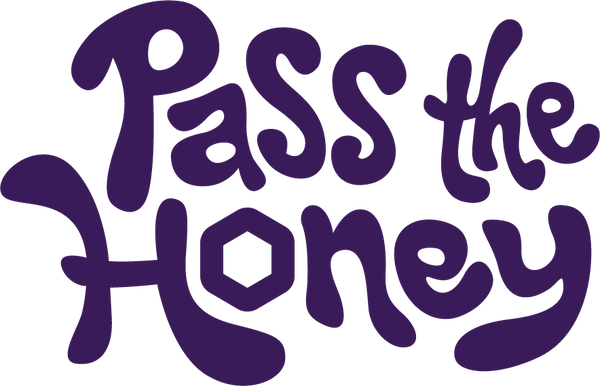The health benefits of pure honeycomb are vast and widely studied.
Yet with so much refined sugar vilification out there (and for good reason), we want to get clear on one thing: Honeycomb is sweet, and it is a high carbohydrate food, but it is for this reason that we should perhaps put our “sweet fears” aside to pay closer attention to its astounding healing properties.
We asked our friend and partner, Ella Davar, a Registered Dietician, and Certified Nutritionist, for her help to expand on the anomaly that is honeycomb: A sweet, delicious snack WITH health benefits.
“Impossible.”
We know! Seemingly so. But, friends - this where we’re about to blow your honeycomb-loving mind. Let’s get to it. We’re pretty certain you’ll be grabbing your next box of honeycomb after we’re done here
Let's get to the root of low-glycemic food.
In her practice, Ella pays close attention to the glycemic index to optimize her patient’s health, mood, and weight management.
By definition, High Gi carbohydrates cause blood sugar levels to spike and then crash, whereas low Gi foods are digested and absorbed more slowly. This slow release of glucose into the bloodstream is proven to be much more beneficial for the body – from improving energy levels to managing weight, diabetes, and other health concerns.
To properly balance blood sugar levels and further, insulin response, Ella recommends pairing most carbohydrates, even those with lower Gi, with protein and fiber to slow blood absorption.
(Did you know that this concept is true of fruit as well? The next time you grab a pear or apple, try pairing it with a handful of almonds or a spoonful of peanut butter.)
Why does Ella ONLY recommend honeycomb as a sweet food to her clients?
Honeycomb’s vast array of health benefits exceed that of any liquid honey, and according to Ella, outweigh the overall benefits of maple syrup and agave as well. There are naturally occurring elements in the honeycomb itself that slow blood glucose response.
“Say what?”
Yep, you heard us!
Ella says, "No other sweeteners possess the health benefits that raw honeycomb does. The glucose oxidase is the digestive enzyme in the honeycomb, which helps us to optimize our digestion, and helps us slow down the blood glucose response and absorption, so we don't have the spikes. The propolis is associated with anti-fungal properties and helps to prevent candida. Polyphenols and antioxidants are also associated with lower cholesterol and decreased risk of heart disease. Honeycomb also serves as a prebiotic, which also supports digestion and overall metabolism.”
So, what’s the best way to eat honeycomb?
When it comes to nutrition, we must pay close attention to our individual bodies as well as our health backgrounds to know what foods truly nourish us and provide us with consistent energy for our days.
Pass the Honey’s single-serve honeycomb is versatile. It can adorn beautiful dishes and appetizer plates as well as be your on-the-go snack. We particularly love peeling back a pack before or after an afternoon hike!
And, for those of us paying keen attention to our blood glucose, here is a fun breakfast dish to embrace a little Dolce Vita whilst getting in a powerhouse of nutrients to start your day:
Breakfast by Ella Davar
- ½-1 cup Goat’s milk yogurt
- A handful of walnuts (or nut of your choice)
- A handful of mixed berries
- Pass the Honey Honeycomb
Scoop, peel, top, and enjoy!
Ready to add a little Dolce Vita to your world, and nutrients to your body? Try some honeycomb for yourself.
Watch the video
About Ella Davar, RD, CDN
Ella Davar is a registered dietitian and a holistic nutritionist who guides people to embody the greatest version of themselves through optimal health, diet, and nutrition. Earning her degree in Nutrition Science at New York University, Ella provides 1:1 coaching to busy professionals in New York City and has served as a nutrition and health counselor for Mount Sinai Hospital since 2015 with a specific focus on longevity, heart disease prevention, and overall well being. You can learn more and book a consultation with Ella on her website: https://www.nutritionistella.com/
Sources:
https://www.hsph.harvard.edu/nutritionsource/carbohydrates/carbohydrates-and-blood-sugar/
